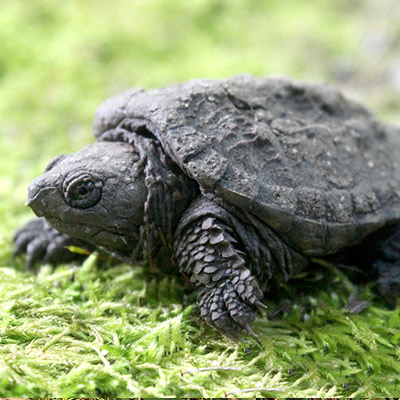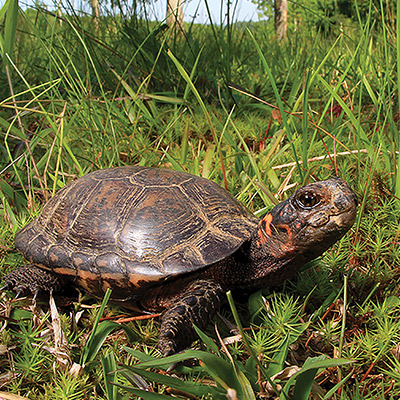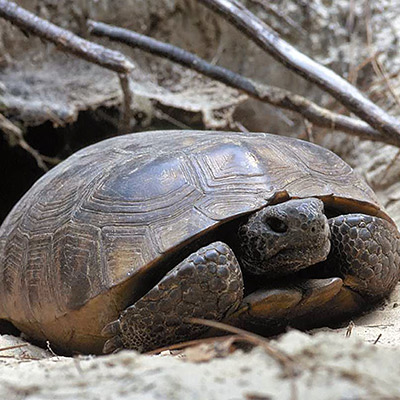by Kristin Love
What do you call a turtle who takes up photography? A snapping turtle!

Elachee Nature Science Center shell-ebrates the turtles that call Chicopee Woods home daily, finding Eastern Box Turtles digging their nests and small Yellow-bellied Sliders in the creeks all over the 1,440-acre preserve. But did you know that while all tortoises are turtles, not all turtles are tortoises? This distinction tends to be under-focused and can put our reptile friends in unintentional danger from well-meaning nature enthusiasts. So, let’s get right down to it!
Turtles are reptiles comprised of both aquatic and terrestrial species with their trunks enclosed in a dome or streamlined shell, and can pull their bodies within their shells to protect themselves from predators. But within that definition lies a wide variety of reptiles with over 40 species native to Georgia. These include Georgia’s state reptile, the Gopher Tortoise, which makes incredible burrows in the sands of Coastal Georgia, all the way to North America’s smallest turtle, the Bog Turtle, measuring in at only 4 inches!

The key question between turtles and tortoises comes down to habitat. Tortoises are terrestrial, which means that they live exclusively on land. These reptiles are typically unable to swim, which can mean big trouble should a “helpful” human neighbor move them from roadways into small backyard creeks. So how can you tell the difference?

Check out these quick tips to help you determine where your new turtle friend belongs.
- Tortoises have more rounded and domed shells where turtles have thinner, more water-dynamic shells. Turtle shells are more streamlined to aid in swimming.
- Tortoises have club-like forelegs and ‘elephantine’ hind legs.
- Turtles will have more flipper like legs, or webbed feet to make it easier to cruise through the water.
- Tortoises are generally vegetarians, while other turtles are omnivorous.
As a reminder, Elachee recommends that all wild animals be left where they belong, in the wild. A majority of freshwater turtles are illegal to possess or contain without special permits in the state of Georgia. For more information regarding the turtles that call Georgia home, please visit the Savannah River Ecology Laboratory of the University of Georgia.
